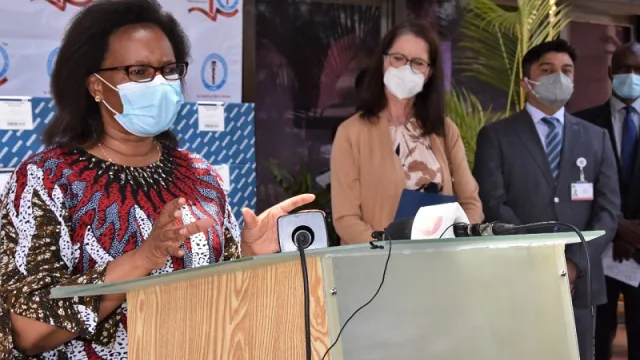Amid Covid-19 surge, US slaps Kenya with travel advisory as AstraZeneca vaccine woes deepen

Amid Covid-19 surge, US slaps Kenya with travel advisory as AstraZeneca vaccine woes deepen
Kenya is already in a tough shape. The country’s Covid-19 positivity rate remains high, at 20.5 per cent, after 1,523 more people tested positive in the last 24 hours even as the US issued travel advisory citing a surge in infections.
The number of positive cases has hit 141,365 with the government having tested 1,530,736 people over the last one year, a statement by the Ministry of Health dated April 7 said.
“Out of the 1,523 cases, 842 are male and 681 are female. The younger is a 3 month old infant while the oldest is a 105-year-old.” said the ministry.
And as the country grapples with worrisome coronavirus spread, the US has slapped Kenya and 39 other countries, including neighbors Tanzania and Somalia, with a level four travel health notice and warning Americans against travelling to the country due to the rising Covid-19 numbers.
Read also: Kenya Covid-19 vaccine rollout gathers pace as 325,000 people get the shot
The move comes just days after the UK issued a similar travel advisory to Kenya, which prompted Nairobi to start imposing 14 days’ quarantine to arriving British nationals in a tit for tat diplomatic measure.
Kenya, which has so far recorded 2,276 Covid-19 deaths, is set to establish a joint emergency committee with the UK to help address the travel restrictions crisis.
Meanwhile, Britain said on April 7 that it would start administering alternatives to AstraZeneca’s Covid-19 vaccine for adults under 30 as European regulators warned of a “possible link” to rare blood clots.
The government’s announcement which came after months of giving unequivocal support to AstraZeneca-Oxford shot is essentially a body blow for the world’s most widely used vaccine and the more than 100 countries relying on it, especially in Africa.
The European Union’s medical regulator stopped short of advising that use of the vaccine be curbed in the bloc.
The Europeans Medicines Agency noted that patients should seek medical assistance immediately if they have the following symptoms: shortness of breath, chest pain, swelling in your leg, persistent abdominal (belly) pain, neurological symptoms, including severe and persistent headaches or blurred vision, tiny blood spots under the skin beyond the site of injection.
Read also: Pandemic sets stage for IMF-led reforms in Kenya’s state owned enterprises
British and European regulators said blood clots were occurring at a rate of about one in 100,000 vaccines administered. European officials reiterated that the benefits of the vaccine outweighed the risk, but they urged health professionals and recipients of the shot to be cautious about symptoms.
In Kenya, the Pharmacy and Poisons Board (PPB) has refuted claims that one person died after getting the AstraZeneca-Oxford shot.
In an April 7 statement released by the PPB, the drugs regulator said: “What we can say is it was a misreport. An expectant female got a miscarriage, it happened within the period of being given the vaccine. It does not have to be linked to the shot,” said the board’s deputy director, Dr Peter Ikamati. Over 325,592 people have already received the AstraZeneca-Oxford Covid-19 vaccine in Kenya.



